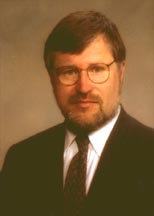Gay activists, feeling invincible with all of their victories, held a summit at the United Nations, in which the next phase of their conquest of the culture's moral code was announced. The International Gay and Lesbian Human Rights Commission listed the remaining laws that it wants changed, including "age of consent" laws. That is to say, the laws against pedophiles, apparently the next group to come out of the closet and to insist on the legality and the morality of their sexual preference.
At the meeting, as reported by the Catholic Family & Human Rights Institute, Paula Ettelbrick, executive director of the IGLHRC, called for a "showdown with religion." One panel member, Princeton University professor Anthony Appiah, called for limiting religious freedom whenever it poses a "challenge" to the homosexual agenda. This would involve criminalizing as "hate speech" religious teachings and Bible readings that brand homosexuality as sinful—a measure already on the books in Sweden and that is being considered in Canada.
Ironically, this initiative to take on religion took place the same week that the Episcopal Church allowed its congregations to hold services blessing same-sex unions and elected Gene Robinson bishop of New Hampshire, the first openly noncelibate and nonrepentant homosexual bishop in the Anglican Communion.
The United Church of Christ already allows their clergy to be practicing homosexuals and stages gay weddings. The Methodist Church, the Presbyterian Church (U.S.A.), and the Evangelical Lutheran Church in America have refused to go this far but are wavering, with "study documents" set to open the door. While the gay radicals are looking for a "showdown" with religion, it appears that the liberal, mainline Protestants are getting out of Dodge—or even joining up with the outlaws.
But for all of the fuss over the Episcopalians choosing a gay bishop, what should have been an even bigger scandal has received scant attention. For decades, the Episcopal Church and other Anglican bodies have been electing bishops who are not even Christians.
John Shelby Spong recently retired as bishop of New Jersey. For his whole ecclesiastical career, he wrote and preached against every tenet of the Christian faith. Bishop Spong, author of Why Christianity Must Change or Die, did not believe in the virgin birth, the doctrine of the incarnation, the deity of Christ, the resurrection, or the existence of God.
In England back in 1984, David Jenkins scorned the bodily resurrection of Jesus Christ as "a conjuring trick with bones." This did not prevent him from being consecrated as bishop of Durham, the fourth-highest post in the Church of England. Richard Holloway, the former head of the Anglican Church in Scotland, also dismissed the notion that Jesus rose from the dead. And these were not the only bishops, entrusted to oversee their church, who rejected even the most basic tenets of the Christian faith.
But this is old news. These particular bishops have all retired by now, though others with similar views continue to wield authority. The point is, the Episcopalian embrace of homosexuality happened only after decades in which the authority of Scripture was jettisoned and Christian doctrine became optional.
Heresy is even more harmful to a church than homosexuality. Choosing a bishop who is gay is bad enough, but choosing a bishop who rejects Christianity is surely even worse. And it should not be surprising that a church that has rejected the authority and the truth of the Bible would take the far lesser step of saying that sexual immorality is OK.
And those who no longer believe in Christ—His deity, His cross, His resurrection—can no longer offer homosexuals and other sinners the gospel that their sins are forgiven in Christ. Instead, they can offer them nothing stronger than the fiction that they have no sins that need forgiving.
There are believing Christians in the Episcopal Church, a tradition that has given us John Donne, T.S. Eliot, and C.S. Lewis. The ruling liberals are confident that they will not revolt, saying that the conservatives made threats when the ordination of women was instituted but didn't do anything about it. This time, with the support of Anglican bishops in Africa and Asia, it may be a different story.
But such controversies all go back to the battle for the Bible. The church bodies that rejected the inerrancy of Scripture in the 20th century now have no basis for resisting the homosexual agenda or any other cultural pressure. They have been sliding down the slippery slope and now they have nothing to grab onto to stop their fall.
If the gay activists want a "showdown" with religion, those Christians who hold to the Bible will be like Gary Cooper in High Noon, abandoned even by their friends and family members, outnumbered and outgunned, but refusing to back down.
